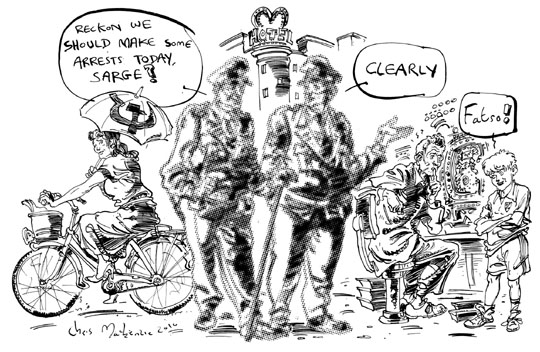A few months ago I met with some Western diplomats who were looking for information about Japanese law — in particular, an answer to the question, "Is parental child abduction a crime?" As international child abduction has become an increasingly sore point between Japan and other countries, foreign envoys have been making concerted efforts to understand the issue from the Japanese side. Having been told repeatedly by their Japanese counterparts that it is not a crime, some diplomats may be confused by recent cases of non-Japanese parents being arrested, even convicted for "kidnapping" their own children. I don't think I helped much, since my contribution was something along the lines of "Well, it probably depends on whether the authorities need it to be a crime."
Of course, the very question "Is x a crime?" reflects a fairly Western view of the law as a well-defined set of rules, the parameters of which people can know in advance in order to conduct themselves accordingly. However, there is a Confucian saying that is sometimes interpreted as "The people do not need to know the law, but they should be made to obey it." This adage was a watchword of the Tokugawa Shogunate, whose philosophy of government was based in part on neo-Confucian principles.
It is also a saying that could provide some insights into why it sometimes seems difficult to get a clear answer about what exactly the law is in modern Japan. I am not suggesting that Japanese police and prosecutors have Confucian platitudes hanging framed over their desks, but knowing the law is a source of power. Being able to say what the law means is an even greater one, particularly if you can do so without being challenged. In a way, clearly defined criminal laws bind authority as much as they bind the people, by limiting the situations in which authorities can act. Since law enforcement in Japan often seems directed primarily at "keeping the peace," laws that are flexible are more likely to serve this goal.

















With your current subscription plan you can comment on stories. However, before writing your first comment, please create a display name in the Profile section of your subscriber account page.